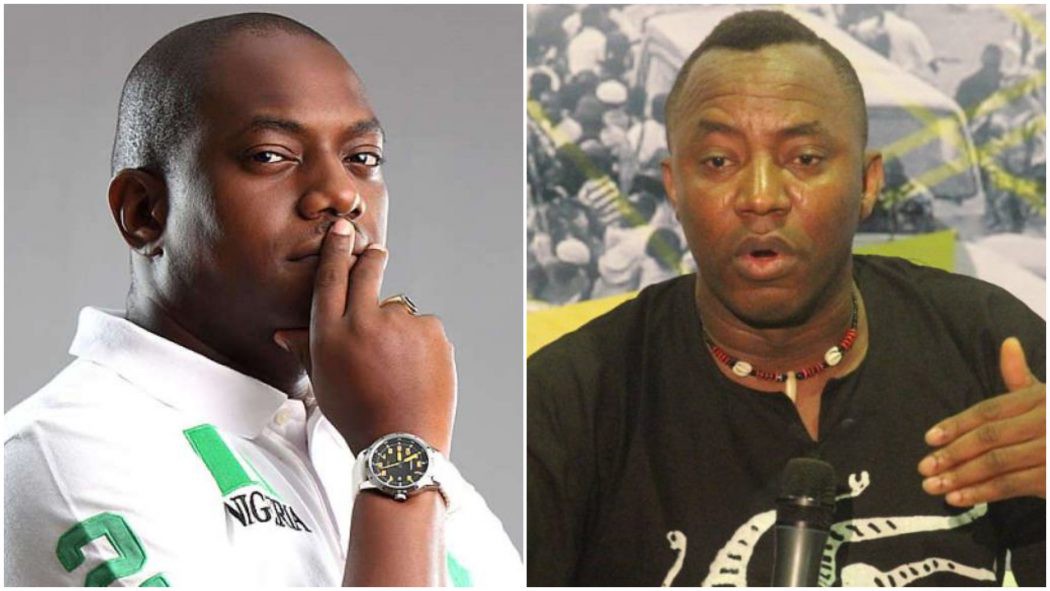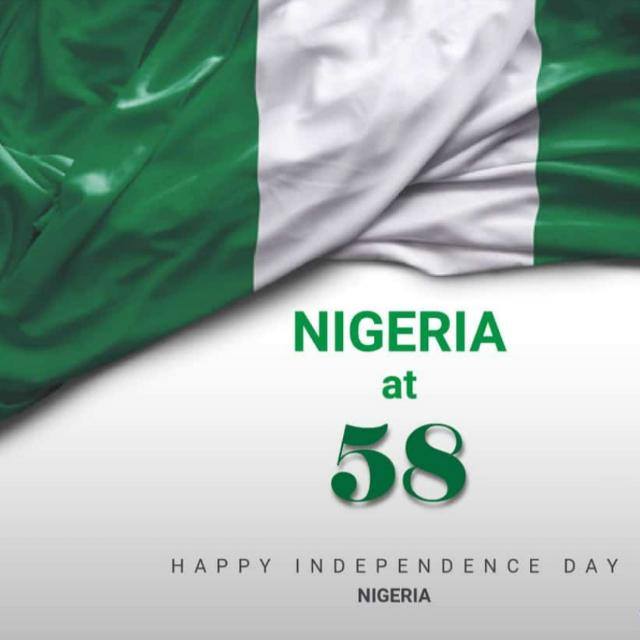Analyzing the political landscape of the country through the lens of gerontocracy, corruption, and tribalism and explaining what must be done to move forward in the right direction.
After 58 years of independence, Nigeria, a country born out of the craftiness of colonialism still remains one. However, the independence of the ethnically diverse country has been marred by lengthy years of coups, intertribal wars, bloodshed, terrorism, violence and all other atrocities that are extremely contrary to the theoretical definition and practice of humanity. Nigeria is a country whose citizens have become globally infamous as perpetrators of illegal dealings, fraudulent activities, and immoral vices. Corruption is at its peak across the length and breadth of the country and tribalism is rampant. Yet, there is hope! However, the decision we choose to make as a country will decide what kind of hope we seek. This article will analyze the current political state of the country explaining it through the lens of gerontocracy, corruption, and tribalism. In the end, it will seek to explain the potential future the country is headed towards as a result of the steps that we take from this moment onwards.
Politics is a crucial part of our lives inasmuch as we might see it as far from us. No extent of our political apathy can make it far from us. Instead, when we refuse to participate in political obligations, we lose our opportunity to allow our voices to be heard and leave room for non-competent leaders to be voted for. Nigeria is a country that has imbibed democracy since independence, however, our democracy is still immature as a result of the unpleasant political realities that have plagued the nation since independence. We are not a country governed by a tyrant dictator; we have survived a civil war; we have survived severe political instability as a result of several coups; and now, since 1999, we have managed to get several civilian governments in power. Regardless, there is still a visible stain in the country’s political atmosphere and this can be analyzed by looking at who gets to be in power (gerontocracy), how power is displayed in the country to suit one’s personal gain (corruption) and specific communal interest (tribalism).
On Gerontocracy:
The country’s political landscape has been gravely marred by gerontocracy as old people are not willing to give up power for the younger generation. The old strategy of manipulating the minds of the electorate through temporal material gifts still works to date. As election dates draw nigh, politicians take time to go to communities that are struggling to live by and give them rice, oil, salt and other cooking ingredients with a tagline of “vote for us and we’ll do more.” The uneducated electorates faces glow with joy and go ahead to the polls to vote for their candidates who just solved their problem of hunger. After the elections, they go back to their normal lives– to begging on the streets, unaware and nonchalant about the results of the decisions they have made, while the politicians keep wallowing in stolen wealth. This is the Nigeria we have become.
Another interesting but unfortunate reality is that we the so-called “educated” younger generation also go to the polls to vote in the older generation based on their promises for us once they get into power. In fact, some youths voted in the current government because of a campaign promise made by the government that unemployed youths would be receiving 5000 Naira (17USD; £11) a month. Till date, that promise has not been fulfilled but instead, the current government branded Nigerian youths as “lazy” and unwilling to work hard enough. This has led to the frustration of many Nigerian youths who clearly now understand that they had been played by the old man himself. Personally, I have come to realize that education in itself is not completely about the school you go to or what you study but the ability to be able to enlighten yourself with every means possible so as to be able to make rational decisions. Many Nigerians who make the wrong decisions at polling stations are well educated in their respective fields but know nothing about democracy and the political landscape of the country. Thus, the inability to make rational decisions.

Nigerian Senators sleeping at different intervals during plenary sessions
On Corruption:
In 2016, David Cameron branded Nigeria as fantastically corrupt. As this might be seen as disrespectful and unacceptable, especially by Nigerians, there is a truth to his assertion. Corruption in Nigeria exists both from the top, in the constitution, down to state level and even to the grassroots. I like saying that the constitution of the country itself is corrupt because the drafting of the constitution was done by narcissistic, selfish politicians who were just after their own personal wealth and till date very little has been changed in the paper we all call the constitution of the country. Earlier this year, Sahara Reporters discovered that some (if not most) Nigerian senators earn an equivalent amount that the president of the USA earns per year (This is excluding huge lumps of money that are stolen on a day to day basis by corrupt politicians). I personally do not understand how the constitution will permit a senator of the house of assembly, representatives or senate to earn a monthly salary that is far above the minimum wage and also benefit from miscellaneous allowances ranging from food, to clothing, to housing, to cars and the likes which in the end totals up to N13.5 million (Equivalent to £27,000; $37,500) per month excluding their monthly salary of around N750,000 (equivalent to $2000). I begin to wonder how a developed country like the USA will only spend less than half of that on its senators, however, a country like Nigeria, despite the poverty and low standards of living, has the fortitude and guts to pay senators such huge amounts of money. The other interesting fact is that civil servants, teachers, sanitation workers, and lower government officials earn 18,000 naira (the minimum wage which is equivalent to $50) or a little above that per month! Although efforts are said to be underway to increase the minimum wage to 50,000, that promise hasn’t materialized as the deadline to begin paying that amount has already passed.
On Tribalism:
This menace has plagued the country severely in the systems and structures in place. We have metamorphosed into a country that places tribes over competency in the appointment of people for job positions; we have become a country that glorifies ethnical and cultural differences over other qualities that qualifies an individual as Nigerian. Thus, we continually discriminate against each other at every opportunity we have to instead reaffirm our patriotism. This was what led the people of the South-Eastern part of the country to want to secede from the country since 1967. This agitation for an independent nation-state called the Republic of Biafra led to the Nigerian Civil War which led to the death and displacement of over a million Nigerians living in the south-east. In 2015, there were fresh and renewed desire by the Igbos of the south-east to want to secede from the country because they felt like they have not been equally treated as other tribes of the country. Tribalism has seeped deep and this is evident in the way we also perform our civic duties as citizens of the country. Some (if not most) of us still have the mediocre notion that voting for someone from one’s tribe will be an everlasting solution to the country’s ills but we never take the time to critically evaluate that proposed candidate and what their intentions are. Because of this, we have become a country that thinks first, about our specific tribes before thinking of the ties that bind us as Nigerians, whereas, it should be the other way round.
The future:
We have a decision to make as Nigerians and whichever decision we choose to act upon will make or mar our future. First, the issue with Nigeria is a leadership crisis issue which cannot be solved until there’s a cogent civic education of the entire populace such that they’ll be able to make rational decisions in the coming elections. This has to be engineered by schools, NGOs and organizations like Enough is Enough Nigeria, so as to allow the electorate to understand what democracy means and help them to make rational decisions on who to vote for. Our inability to be able to make logical decisions at the polls will ultimately decide our fate continuously- that is, we’ll keep treading on the path of voting in old leaders whose orthodox methods are no longer relevant in today’s age and time. Corruption will never cease and all other kinds of menace that keep plaguing our societies will be a constant.
“The ignorance of one voter in a democracy impairs the security of all.” – John F. Kennedy
I am not saying that voting in a young, vibrant leader will miraculously change the situation of the country, but rather, each time we go to the polls to vote in a leader above 60 or 70, we should think twice about that decision if it is the right decision or we are just voting because they have slapped us to silence with their token gifts just in time before the elections. One thing I can say for sure is that we have seen the meager achievements that have been made by prominent parties and old leaders when they come into power and I think it is high time we gave a chance to other people (especially younger people below the age of 50) to be able to make the impact they have proposed. If we trusted our votes to the old patriarchs who have made this country to be in the dilapidated state that it is today, then why can’t we entrust it in the hands of the younger people like (Omoyele Sowore and Fela Durotoye) that are rising up to challenge the status quo of gerontocracy? Perhaps, with their refreshing ideas, this can be a way to knock down the corruption issue that has crippled our systems and the issue of tribalism which keeps us in perpetual mourning.

Fela Durotoye (L) and Omoyele Sowore (R)
In the coming 2019 elections, we have a vital role to play and whatever decision we make will decide our destiny for the next four years. Will we allow the old patriarchs to continue their enslavement of this country or give way for fresh ideas and new perspectives to be considered? We have a crucial choice to make.
Phew! Okay… So after that long read, please, enjoy this song titled “Great Nation” by Timi Dakolo. I like this song because it sort of reinvigorates the patriotism that every Nigerian should inculcate… and if you’re not Nigerian, it allows you to see the strength and hope some people still have in the country. I have been touched by it. Perhaps you will too. Ok. Bye now.
[youtube https://www.youtube.com/watch?v=Y2OhlyXx3kE&w=560&h=315]

Thank you Salami for Educating us. Your analysis and recommendations should be the cornerstone for all political decisions on our continent. Live Longer
We believe in Nigeria.
Haha… thanks sire!